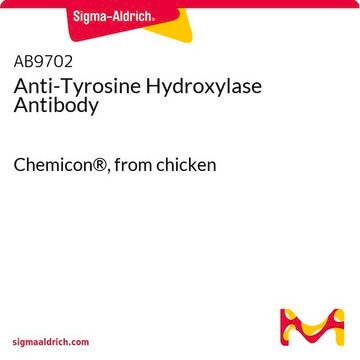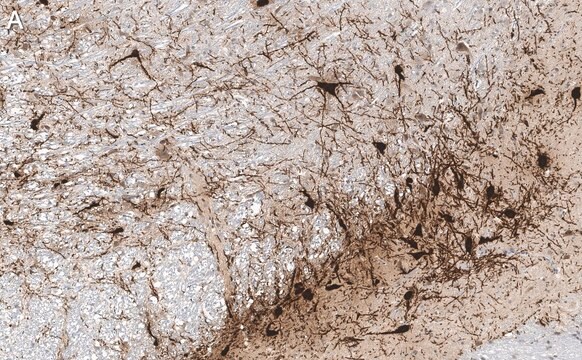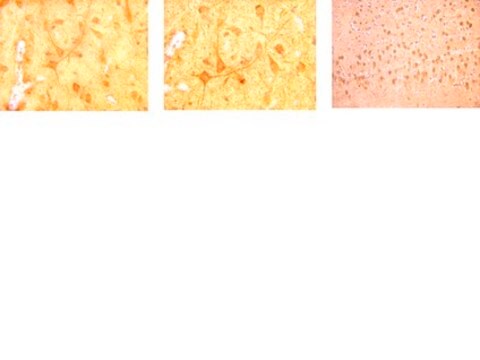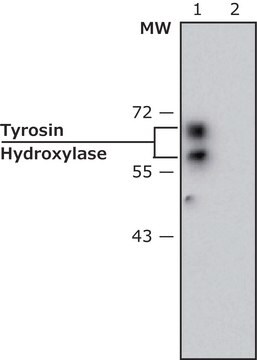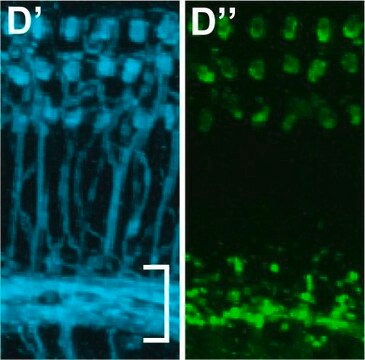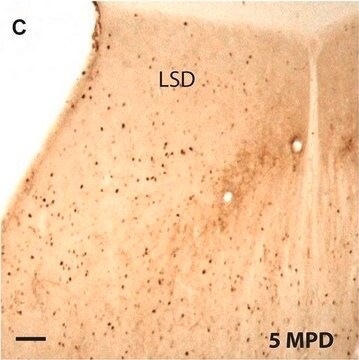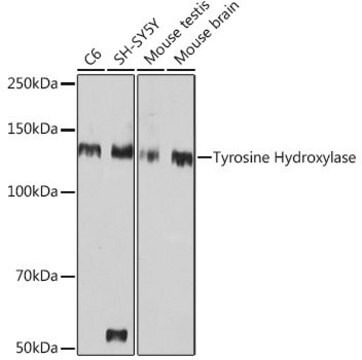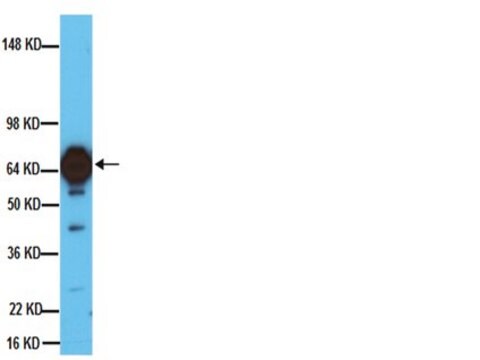AB1542
Anti-Tyrosine Hydroxylase Antibody
CHEMICON®, sheep polyclonal
Synonym(s):
Tyrosine 3-hydroxylase, Tyrosine 3-hydroxylase, tyrosine hydroxylase
Select a Size
Select a Size
About This Item
Recommended Products
Product Name
Anti-Tyrosine Hydroxylase Antibody, Chemicon®, from sheep
biological source
sheep
Quality Level
antibody form
affinity isolated antibody
antibody product type
primary antibodies
clone
polyclonal
purified by
affinity chromatography
species reactivity
rat, mouse
species reactivity (predicted by homology)
mammals
manufacturer/tradename
Chemicon®
General description
Specificity
Immunogen
Application
Note: It is important that you use a secondary antibody that has significant reactivity to sheep IgG1 since the majority of the sheep immunoglobulin is IgG1.
Optimal working dilutions must be determined by the end user.
Neuroscience
Neurotransmitters & Receptors
Neuronal & Glial Markers
Quality
Western Blot Analysis:
1:1000 dilution of this lot detected tyrosine hydroxylase on 10 μg of mouse brain lysates.
Target description
Physical form
Storage and Stability
Handling Recommendations: Upon first thaw, and prior to removing the cap, centrifuge the vial and gently mix the solution. Aliquot into microcentrifuge tubes and store at -20°C. Avoid repeated freeze/thaw cycles, which may damage IgG and affect product performance. Note: Variabillity in freezer temperatures below -20°C may cause glycerol containing solutions to become frozen during storage.
Analysis Note
Positive: brain (corpus striatum) and adrenal gland. Negative: liver.
Legal Information
Disclaimer
Not finding the right product?
Try our Product Selector Tool.
recommended
Storage Class Code
10 - Combustible liquids
WGK
WGK 2
Certificates of Analysis (COA)
Search for Certificates of Analysis (COA) by entering the products Lot/Batch Number. Lot and Batch Numbers can be found on a product’s label following the words ‘Lot’ or ‘Batch’.
Already Own This Product?
Find documentation for the products that you have recently purchased in the Document Library.
Customers Also Viewed
Our team of scientists has experience in all areas of research including Life Science, Material Science, Chemical Synthesis, Chromatography, Analytical and many others.
Contact Technical Service
